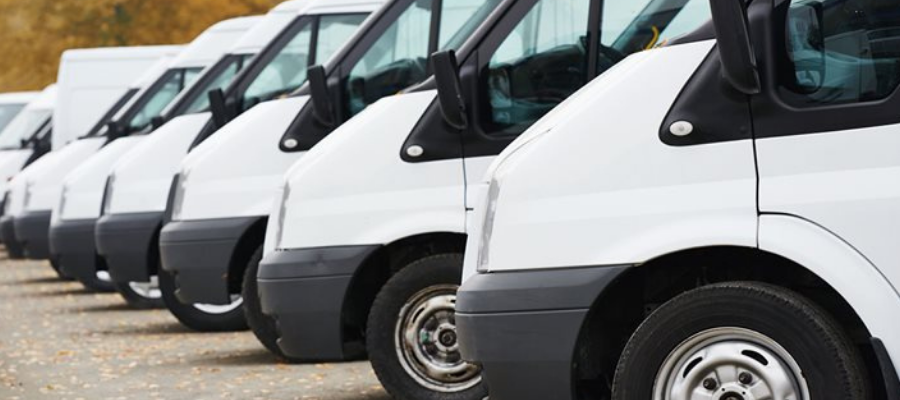🕒 Article read time: 2 minutes
Changes to rates and grants that van operators should be aware of

While the Chancellor froze Fuel Duty in his Spring Budget, he did raise rates across several other measures which will affect businesses that operate van fleets.
Vehicle Excise Duty (VED), often known as road tax, on cars and vans has increased from this April in line with the Retail Price Index (RPI). While VED rates for cars now reflect their CO2 emissions, the rules are different for vans, where the tax is dependent on the age of the vehicle. For diesel or petrol light goods vehicles under 3.5 tonnes registered after 1 March 2001, the flat rate cost for 12 months VED is £275. Zero emission electric vans are exempted and Euro 4 compliant vans registered between 1 March 2003 and 31 December 2006 and Euro 5 compliant vans registered between 1 Jan 2009 and 31 December 2010 pay a reduced rate of £140 per year. The updated rates of Vehicle Tax for all vehicle classes can be found here.
As previously reported in Logistics Magazine, the government announced in March that its plug-in grants for vans weighing less than 2.5 tonnes would reduce from £8,000 to £3,000 for those between 2.5 and 3.5 tonnes the grant is now £6,000. Dealers or vehicle manufacturers can claim for any orders placed by customers in the 28 days before this change (ie, between 00:01 on 18 February and 23:59 on 17 March 2021) that had not been logged on the government portal. These will then be paid according to the previous rates and eligibility criteria. Further information about the grants and eligibility criteria is available here.
Denise Beedell, Logistics UK’s Policy Manager for Vans and Urban commented: “It was disappointing to see the changes announced in March for the plug-in grants, which have been reduced for vans. Logistics UK’s members are committed to making the switch to alternatively fuelled vehicles, but options are limited for operators given that this part of the market is still to reach maturity. Reducing the financial support available at this time, especially after the financial impact of the COVID-19 pandemic, will hinder this transition.
“To enable operators to make a change within their normal vehicle replacement cycles, it is imperative that government lays out a clear policy road map so that operators can have confidence in the investments required to decarbonise their fleets and manufacturers are encouraged to develop and launch a wider range of suitable vehicles.”
Meanwhile, the main rate of the National Living Wage increased from £8.72 to £8.36 from 1 April 2021 – a 2.2% increase – and it now applies to all workers aged 23 and over, from 25 previously. National Minimum Wage rates for 16-22 year olds have also increased and the Apprentice Rate has increased by 3.6% from £4.15 to £4.30.
Also worth noting is that the government’s measure for IR35 has changed to stop the practice of ‘disguised’ employees operating through self-employed intermediaries and paying less tax. The crucial change is that from 6 April, the determination will fall with the client, rather than the Personal Service Company.
*www.logistics.org.uk/van
Published On: 15/04/2021 17:00:48

Comments Section
If you are a Logistics UK member login to add comments.